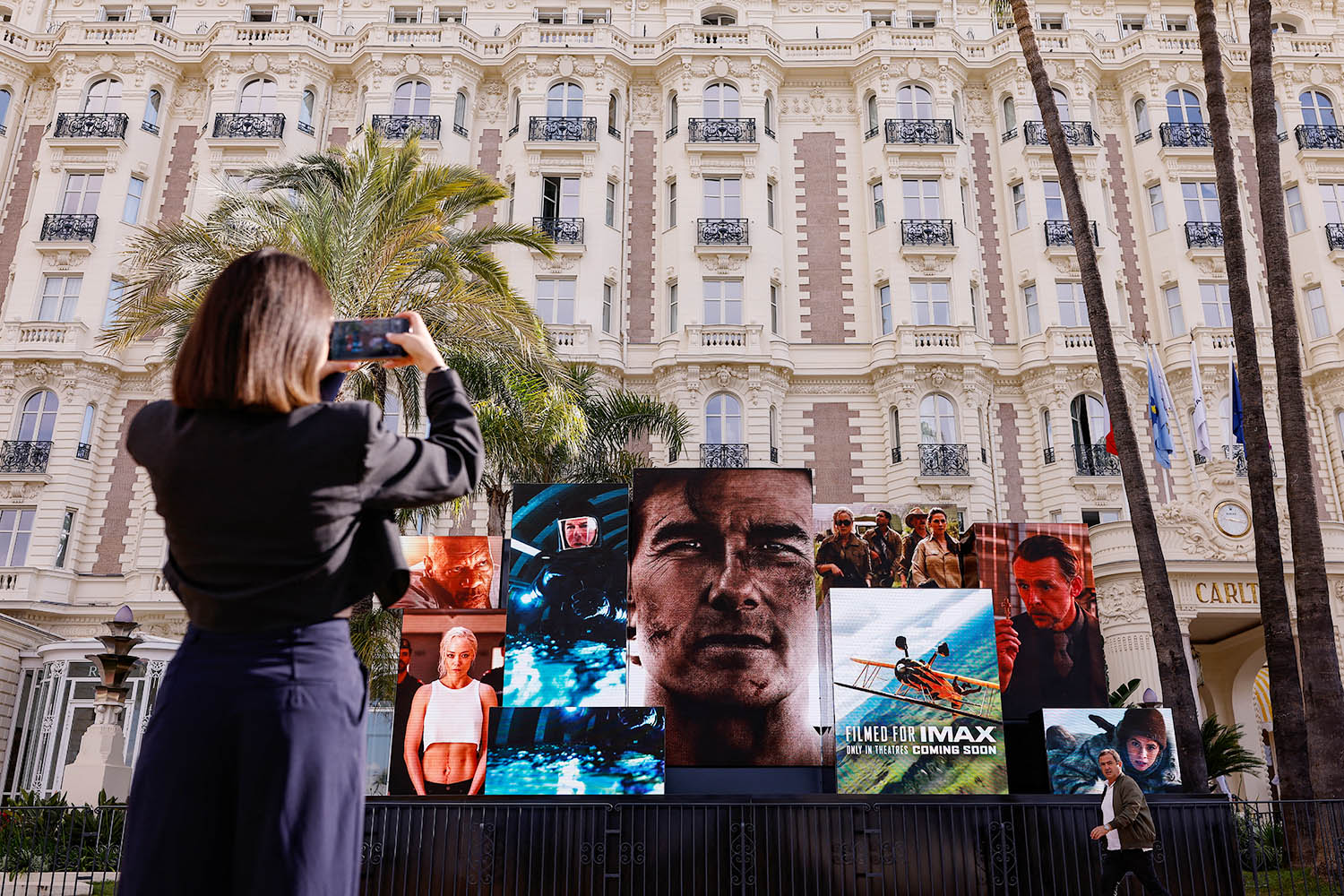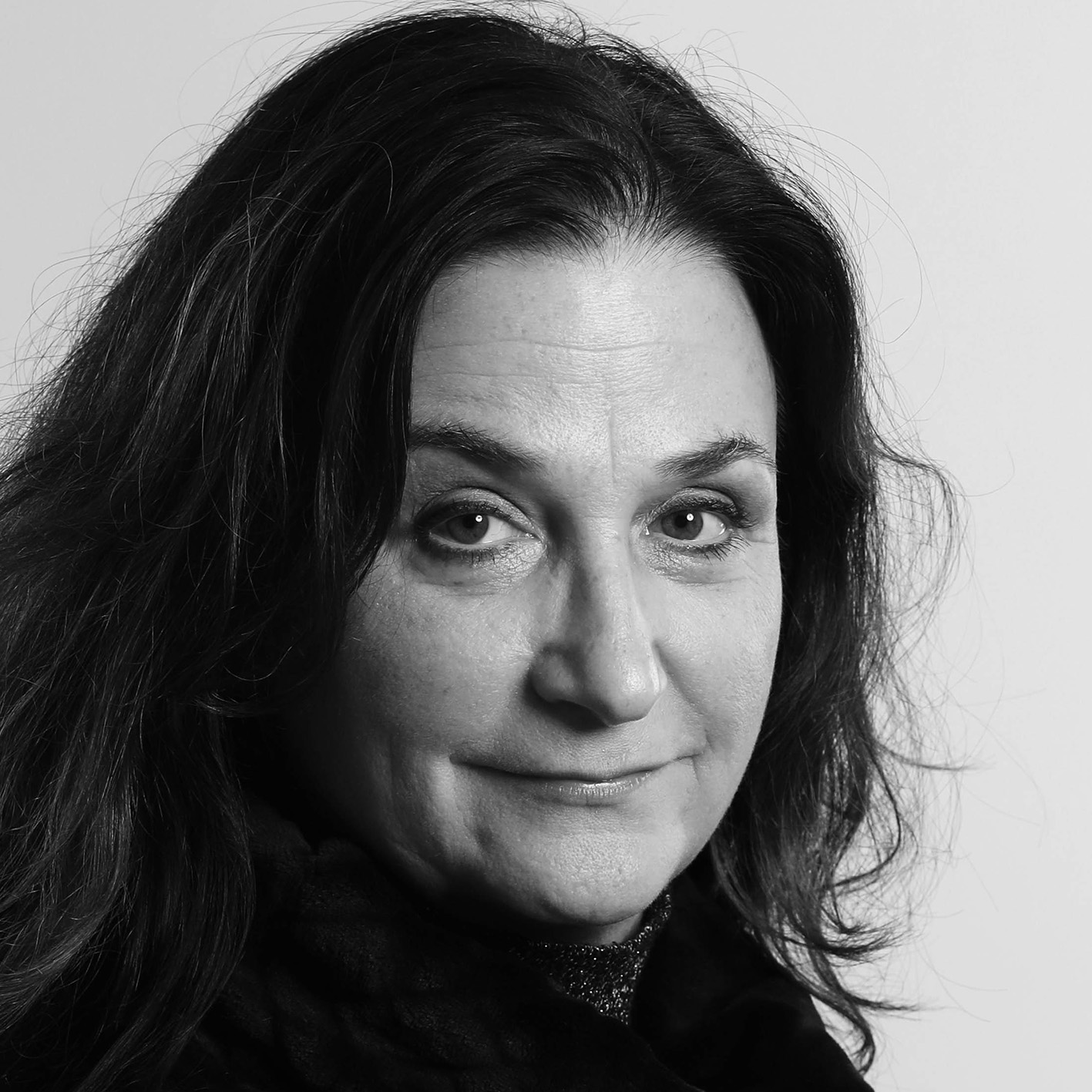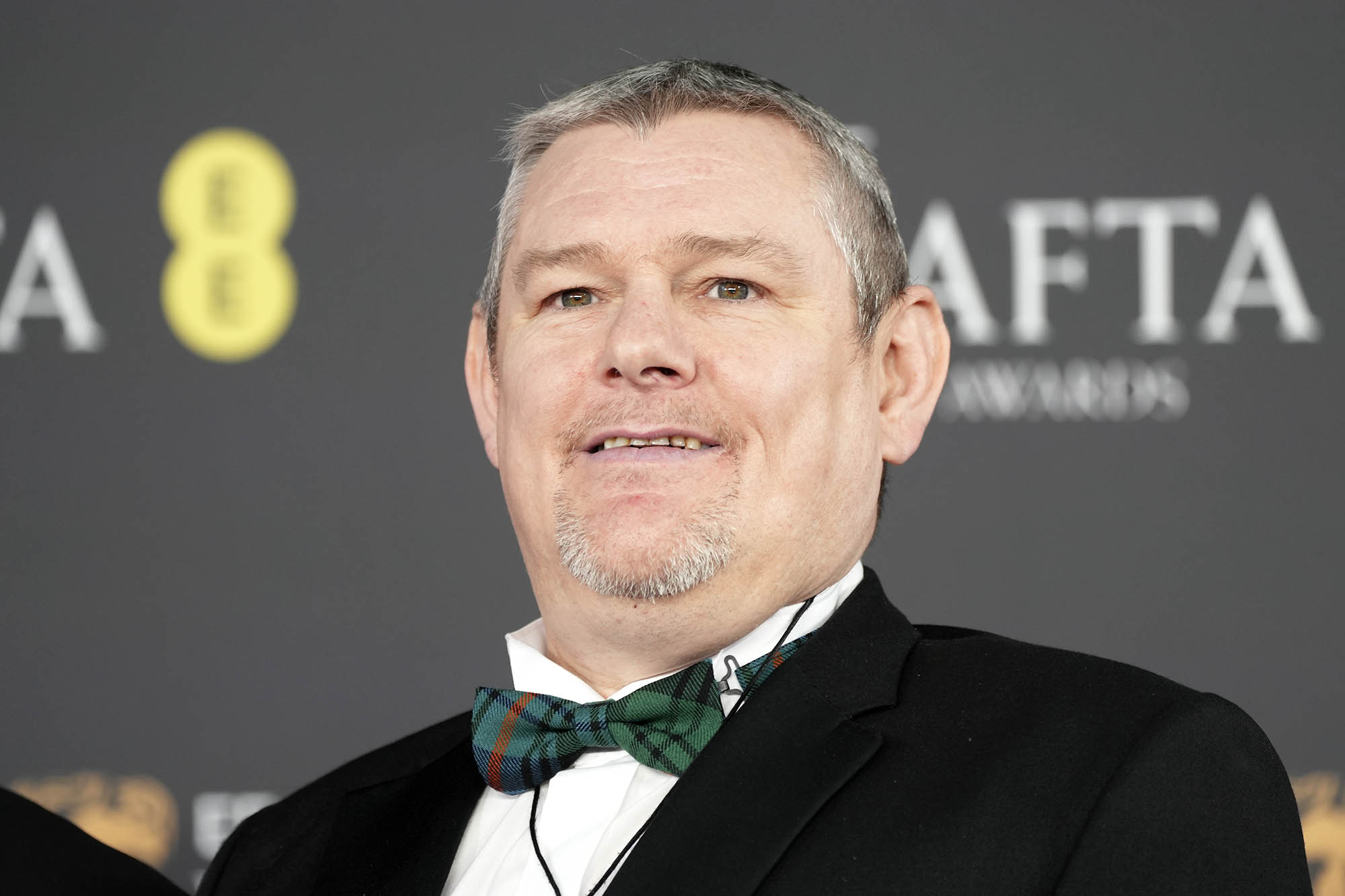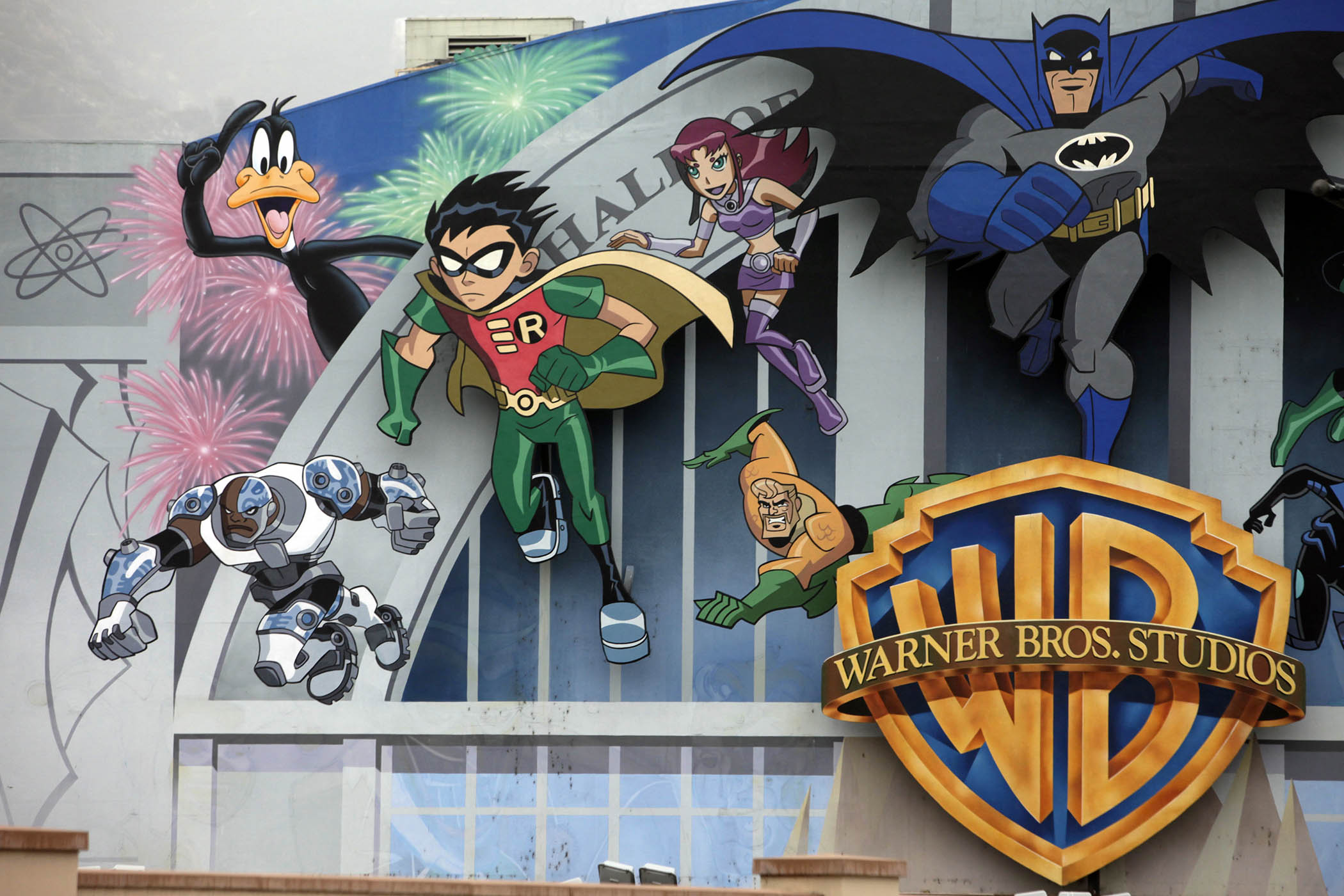A huge sign spells out “Cannes” next to the castle tower above the city. It is a nod to the famous Hollywood sign, and on inspection, after a climb in afternoon heat, its flimsy lettering is made out of some sort of spun material. Dreams, perhaps?
A walk along the narrow castle ramparts with the day-trippers means stepping quickly out of the way of a woman alarmed by the sudden sound of a tolling bell. It’s just the chime of the “Petit Train” for tourists, warning its passengers that it will soon trundle back down.
One remaining visitor holds a selfie stick; quite quaint these days. He is having trouble finding a good shot because the best Instagrammable bits of Cannes are below us, around the Palais du Festival, where the yachts are moored for the film festival.
There are red carpets everywhere down there at this time of year. They cover stairways and shop entrances, and sightseers pose beside them as if they are portals to a better world.
Cannes was once a jaunty, romantic place; knocked about a bit, as befits a port. The novelist Georges Simenon, who lived in the hills in an area actually called La Californie, once had his famous detective, Maigret, describe the city’s old port as “smelling like the holidays”. Then, inevitably, Maigret uncovers the dark violence of its underworld.
More recently, Cannes had begun to look like any fading seaside conference venue; littered and full of potholes. In the last few years, though, it has pulled up its culottes and made big improvements. This is the smartest Cannes has looked for ages, with more fountains, newly built fishermen’s cabins and pristine boule courts in front of the Hotel de Ville.
But it remains a place where a wide gulf in lifestyles is on display. The expensive glitz of Boulevard de la Croisette contrasts with the tough lives clearly eked out in the back streets. Police pushed their way into a rough accommodation block earlier in the week in response to a protracted bout of screaming.
In truth, both these sides of Cannes are pretty irrelevant for the thousands of earnest film critics who fly in each May. This year, they step around a homeless man lying next to the Notre Dame de Bon Voyage church, in sight of a fleet of limos queuing for a premiere.
Cannes’ relationship with Hollywood is strained at this festival. Politics and tariffs have caused a rift. Receiving a fellowship on Wednesday, Robert De Niro said the US was “fighting like hell for the democracy we once took for granted”, adding that “art looks for truth. Art embraces diversity. And that’s why art is a threat.” On Thursday, the American pavilion felt it necessary to host its first “California Day” to promote the idea of Hollywood as a production destination.
In the past, the festival has functioned as a stage set simulating “Hollywood at play” and flexing some soft power. Big-budget US movies could also gain kudos from a link to the French cinematic arts, while European films gained publicity. But now the 100% tariffs Donald Trump has conjured loom like a spectre over the financial deals brokered in the plush bars of the Carlton or Majestic hotels, “wreaking havoc”, as one industry journal puts it.
Newsletters
Choose the newsletters you want to receive
View more
For information about how The Observer protects your data, read our Privacy Policy
This year’s big-budget-American-movie-seeking-kudos, Mission: Impossible – The Final Reckoning, somehow added to the gloom, toying with the idea of Armageddon, as many action films do. It all seems more cavalier now, though: as if the world of entertainment is willing us on to self-annihilation. So many current film and TV plots predict the disintegration of civilisation, from The Last of Us to The Handmaid’s Tale. Maybe art is “a threat” in a way De Niro did not mean.
The things that we repeatedly imagine become conceivable, so Hollywood and Cannes should be careful what dreams they spin. Perhaps they might make space for stories that, as The Final Reckoning’s lumbering closing monologue suggests, envision a better future.



